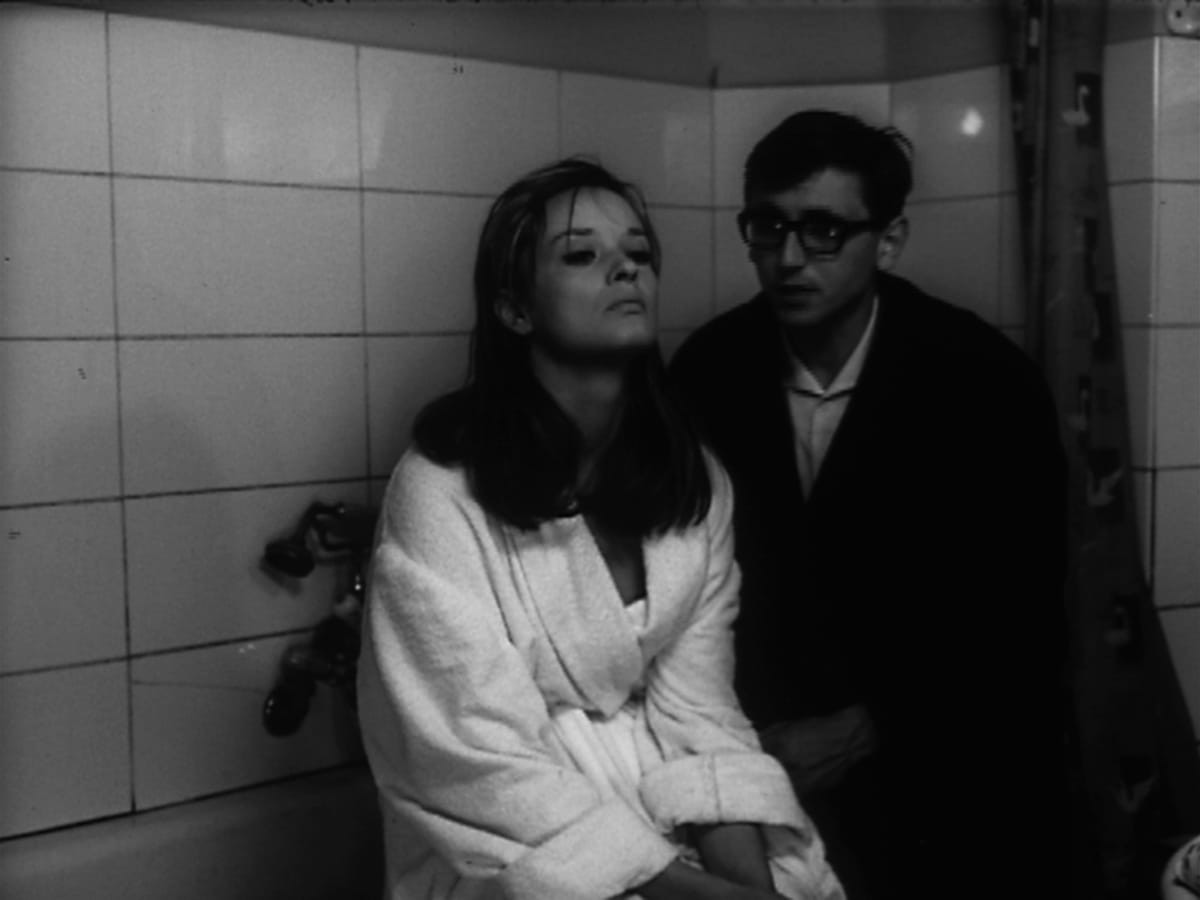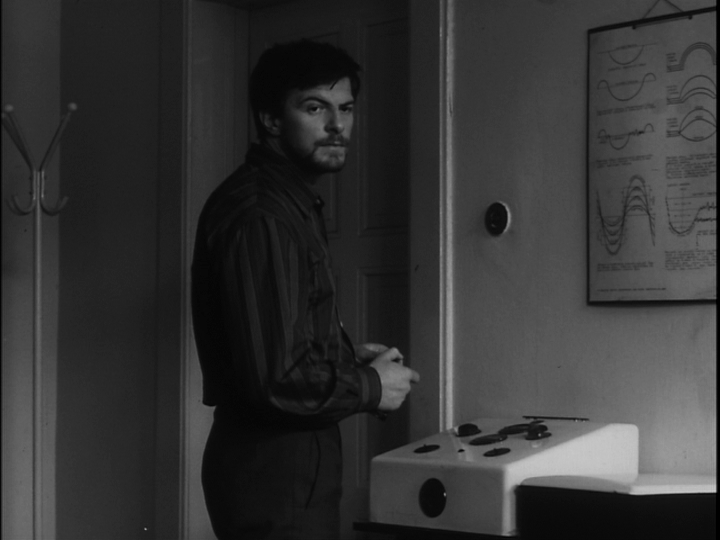
Released in 1967 and directed by Evald Schorm, Return of the Prodigal Son centres around the mental health of an engineer named Jan (Jan Kacer) as he stays in a psychiatric ward following a suicide attempt. The film begins with a brief disclaimer: “The film you are about to see — in its plot, characters and setting — bears no resemblance to reality. It is only a play in which everything is distorted and exaggerated. Life isn’t like this.” Of course, this is meant to be a very tongue-in-cheek statement seeing as how the film is very much representing the existential dilemmas found in real life…
Just by looking at him, you’d think Jan should be perfectly fine. He’s an engineer with a beautiful young wife and an adorable little girl — so what seems to be the problem? Well, his struggles are mainly internal. Even though he has everything one would assume would be enough for him to keep on living, he just can’t find happiness in a simple, normal life. As the film goes on, we learn just how complicated his life actually is. His relationship with his wife, Jana (Jana Brejchová), isn’t as straightforward as one might assume. She loves him but finds it difficult to express herself due to her own problems.

After a failed suicide attempt, Jan is checked into a mental hospital where he encounters some pretty interesting characters. His roommate is a dancer who gets along with him quite well; he meets a volatile woman who’s always asking for cigarettes; and he even gets romantically involved with the doctor’s lonely wife, Olga (Dana Medrická). They bond over the mutual feelings of discontentment with life and mostly spend their time talking about their problems. But things get complicated as they get closer and closer.
And since Jan is no longer around to keep his wife company, she has an affair with her friend Jirí (Jirí Menzel), who actually has his own problems as well. He’s in love with Jana, but she can never truly feel the same way for him since she’s still committed to her husband, and only calls him whenever Jan’s not around. While both Jan and Jana have other “romantic” interests, they have a clear love for one another that’s understood whenever they reunite. It’s refreshing to see a film of this era tackle mental health in such a nuanced and realistic manner. Most of the conflict comes from the internal struggles of the characters.
Practically every main character in the film is unsatisfied with their own life. Even the doctor (Milan Morávek) doesn’t appear to be entirely happy, but he has found his own solution to make life more bearable. And everyone’s reaction to Jan’s mental health varies as well. His in-laws are completely dismissive of his condition and refer to his suicide attempt as a “stupid thing” he did, and some of the personnel in the hospital actually believe he’s only pretending to be sick. The doctor, on the other hand, is incredibly patient with Jan and tries to find solutions for him to cope with his life.

The film does a good job of portraying the difficulty of acclimating to a regular life while also dealing with mental illness. There are several instances where Jan leaves the hospital to interact with the outside world, but he can’t seem to keep it together enough to live a regular life. This is a film that understands just how difficult it is for anyone who’s suffering from this condition and how it affects the people around them. It’s a constant struggle with no definitive solutions, and the film treated it as seriously as it should be.
Return of the Prodigal Son is very therapeutic as well. Most of the scenes are centred around characters contemplating life and all its struggles. But it doesn’t really give any easy answers or solutions to life’s biggest questions — we don’t really know if Jan will ever truly find what he’s looking for. It simply presents more questions and the characters just come up with their own answers and interpretations on how to live life — which is all any of us can really do.
Ive been wanted to see this film for a while anyone know whether it is available to see on streaming or region 2/B in Europe?
LikeLike